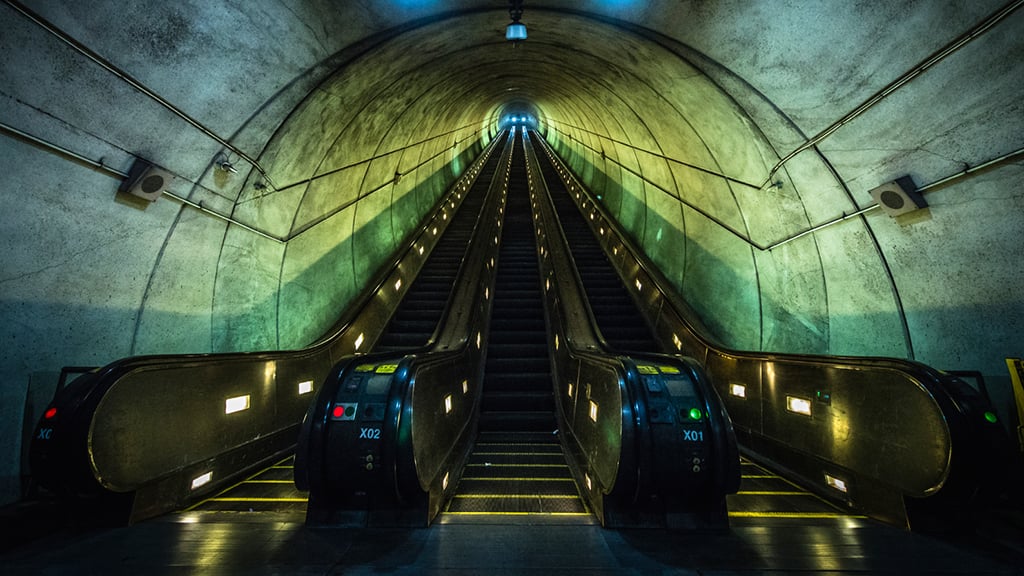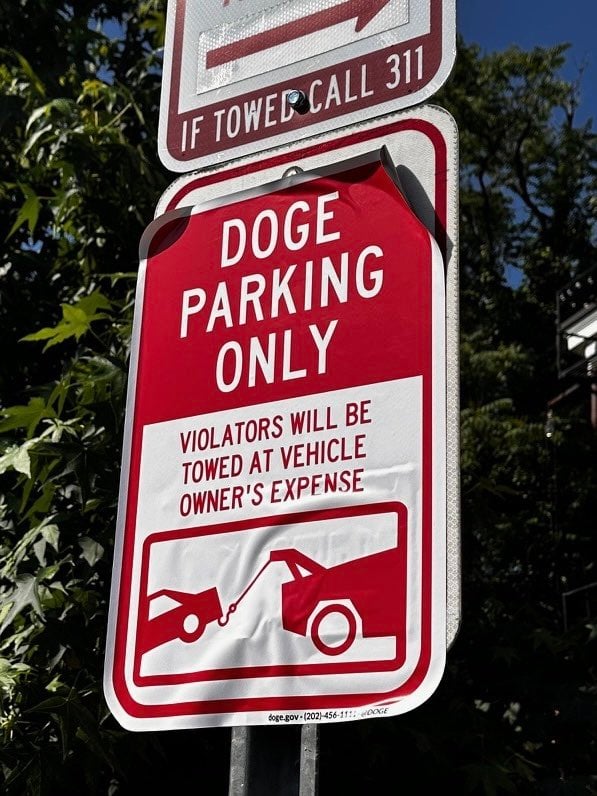About Umbrage Court
Umbrage Court adjudicates the extremely minor problems of urban living and strives to bring clarity to the Urban Compact. If you have business before the court, please email [email protected].
Comes now a citizen with a complaint for Umbrage Court:
Your Honor,
I am throughly confused. I have long followed the unwritten rule of “stand on the right, pass on the left” whilst on Metro escalators. Yesterday, an academic opined that it’s actually efficient to stand rather than pass (and some transportation geek friends also say passing causes damage to the escalators since one side gets an uneven wear and tear due to the constant plop plopping).So as the court of last resort, the good commuters of the DMV ask the court this question: do we stand or pass on the left side of Metro escalators? We just want to get to work!!!
God Save the Court,
Rene

I. Factual Background
Washington’s folkways (and, let’s be honest, charms) aren’t always obvious. It follows, then, that falling in love with this place is often followed by a period of overcorrection: loud insistence that half-smokes and mumbo sauce are more than underwhelming examples of food you can find pretty much anywhere, a disproportionate interest in neighborhood boundaries, and a fervent belief that walking down the left side of the escalator is a basic human right.
How did escalators, the public transport equivalent of a combover, even become something worth fighting about? In his 2006 book The Great Society Subway: A History of the Washington Metro, Zachary M. Schrag ponders the “hazing” aspects of Metro, such as the complicated fares, the daunting machines, and, of course, the unspoken rules about escalators. This “surface hostility may overlay a native satisfaction that Metro is one downtown environment in which residents can assert ownership,” Schrag writes. It also stands to reason that a city that’s magnetic to type A personalities but has long, slow escalators would spawn a market solution like walking on the left.
II. Analysis
Why don’t we see signs encouraging people to join us in our civic campaign to spend as little time on escalators as possible? Because Metro doesn’t believe it’s a safe practice to walk on escalators. Others, such as the academic you mentioned, believe overall system efficiency benefits when everyone stands. That philosophy will never take root here, but harried Washingtonians should remember that we’re hosts to lots of people who live in places where walking on escalators is considered aggressive, or at the very least weird behavior. Freaking out when people who’ve never been here don’t conform to an unposted, unfamiliar “rule” is not exactly the type of behavior that endears us to the rest of the country.
III. Conclusion
This court is predicated on the belief that a tacit agreement governs most of the minor friction points of urban life, and that life would be more pleasant if everyone just got with the program. But on this point Umbrage Court sides with the oblivious.
It’s important to ask ourselves why it bothers us so much when people stand on the left. Like Massachusetts colonists upset by the Stamp Act long after it was revoked, Washingtonians have conflated escalator etiquette with larger issues of disrespect. While it can be comforting, this approach lets people who stand on the left become symbols of all that’s dispiriting about living here and opens us up to a campaign to “own the libs” by visiting here and purposely ignoring our escalator mores. Can you imagine the TikToks? They’ll be BRUTAL!
Shouting at the gangly kids in cheap suits and lanyards when they clog an escalator will achieve one thing: They’ll think you’re the asshole in the situation. And, sorry, they will be correct. So turn up your headphones, take a deep breath, and practice mindfulness when an escalator hog appears before you. You’ll rob them of an opportunity to complain about how rude Washingtonians are, and chances are you’ll still make your train. Remember, they probably have to go back to someplace awful, while all the splendor and glory of Van Ness awaits you.
ABOUT UMBRAGE COURT
Umbrage Court adjudicates the extremely minor problems of urban living and strives to bring clarity to the Urban Compact. If you have business before the court, please email abeaujon@washingtonian.com.




















